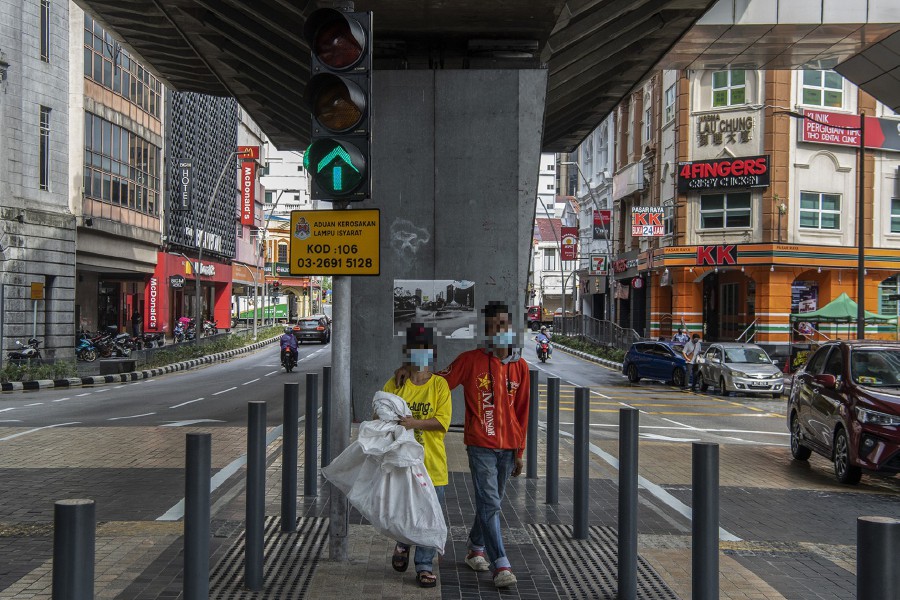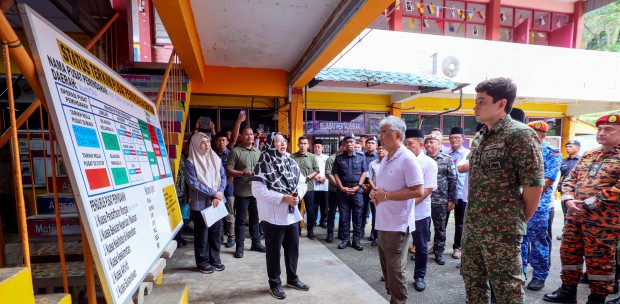IT appears that the total or full lockdown, after more than a month of its implementation, has had a very minimal impact in containing the spread of the Covid-19 pandemic.
Clearly, it has badly impacted the people's economy, even to the T20 and M40 household groups, what more with the B40, or the bottom 40 per cent household group category, the vulnerable groups, and the extreme poor segment in society.
Many are struggling to put food on the table, even experiencing depression as a result of the indefinite lockdown. The hardships are real, to the extent that people are putting up white flags asking for help.
And worse, suicide rates are rising. Meanwhile, the lockdown continues, with the Enhanced Movement Control Order in most parts of Selangor, Kuala Lumpur and other areas.
Under the National Recovery Plan (NRP), the opening up of economic and social activities can only resume in the third phase, expected to happen in September.
Thus, it is within this context that the RM150 billion Pakej Perlindungan Rakyat dan Pemulihan Ekonomi (Pemulih) needs to be understood and appreciated.
Not only that, Pemulih, the eighth stimulus package announced by the government, must be seen together with the previous stimulus packages and the 2021 budget, totalling a whopping RM852.5 billion.
So far, around 20 million people and 2.4 million businesses have benefited. Pemulih will expand the reach. Indeed, the situation on the ground is very dynamic and requires effective and efficient monitoring system based on data with the application of the latest technology.
Pemulih is holistic and all-encompassing in its scope, target and strategy. The cash assistance programme this time covers the M40 group as well, besides the B40 and vulnerable groups, and it is given periodically until the end of this year rather than a one-off payment.
The loan moratorium programme is no longer targeted, but for all, especially for M40 and T20 groups, with a six-month automatic approval.
This is a relief for many who are struggling. For those with unaffected monthly salaries, the moratorium really helps as we don't know the financial condition of their spouse, family or the community they live in.
Another great relief would be the new i-Citra initiative from the Employees Provident Fund (EPF). With RM30 billion expected to be channelled to the 12.6 million members to withdraw, it is an immediate relief for daily consumption purposes and what many really need right now and for months to come.
As consumer spending increases, it is also good in stimulating the economy moving forward. In the first quarter of last year, much of the improvement in the private sector consumption was mainly attributed to i-Sinar and i-Lestari schemes. Hence, the multiplier effect can also be expected for i-Citra this time.
For the B40 and the most vulnerable groups, the expansion of the food basket initiative, with a total of RM300,000 for each lawmaker, is indeed a sigh of relief. In addition, more cash aid will be given and subsidy programmes are to be improved. One example is the cooking oil subsidy.
But, what is more interesting under Pemulih is the improvement on the Bank on Wheels initiative, where RM18 million is allocated to provide another 30 units of mobile banks to station at 250 rural areas in Malaysia.
This will help them to perform banking transactions easily. Even aspects for social, psychological, and emotional impacts of the lockdowns and Covid-19 pandemic are already provided under Pemulih.
Businesses, especially in the small- and medium-sized enterprises, as well as heavily affected sectors such as tourism, are getting their economic booster shots too. More importantly would be the success of the Covid-19 National Immunisation Programme in the near future, where RM1 billion is allocated to increase the vaccination efforts under Pemulih.
Only by reaching herd immunity can we open up social and economic activities, which is key to a long-lasting economic recovery. In the meantime, the fine-tuning of the NRP so that the three criteria to be targeted, rather than a blanketed effort, is a step in the right direction.
The earlier the economy reopens, the better for the people. Those who have been fully vaccinated must also be allowed some exemptions to move around.
Pemulih is not perfect. Indeed, there is still room for improvement. But, it is a crucial building block to get us out of this crisis.
The writer is Associate Professor of Economics, Head of Political and Economic Risk Research Unit, Universiti Utara Malaysia






